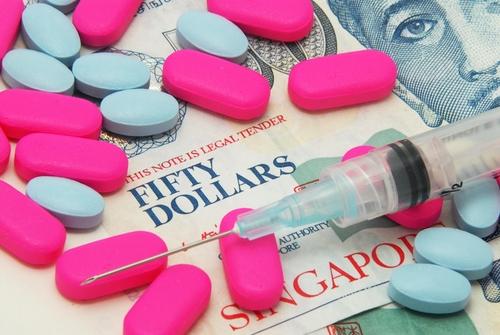
Singapore's 5.2% GDP growth is not sustainable: Morgan Stanley
The growth of pharmaceutical production, which supported the GDP, is considered lumpy and volatile.
Singapore's 5.2% GDP growth is not sustainable, Morgan Stanley said.
The strong GDP print was largely driven by higher manufacturing output as well as inventory buildup, which was caused by a sharp rebound in pharmaceuticals.
However, pharmaceutical production is considered "typically lumpy and volatile." Manufacturing momentum is yet to normalize, but it should remain at a healthy level as it heads into 2018.
The contribution of inventory build-up should also decline as inventories would have to be run down and destocking would subtract from headline growth.
Capital expenditure has stayed tepid, mainly due to weak private construction activity, which was, in turn, driven by the moribund property market.
However, private construction activities should pick up as the property market recovers and the number of en bloc transactions rise, spurring building works. The government is also planning to spend $1.4b for public projects next year to boost the construction sector.
Private consumption has also seen a slight turnaround, which went up 0.6% YoY in 2016.
Speculations of a Goods and Services Tax (GST) rate hike appeared after the prime minister said there is a need to raise tax revenue.
Morgan Stanley economist Deyi Tan said, "Historically, private consumption sequential momentum has tended to see a short-lived contraction in the quarter when the GST rate was raised/introduced, before normalizing in the following quarters. As such, we do not expect a potential GST rate hike to derail the recovery, particularly given that policymakers would typically attempt to cushion the impact for lower-/middle-income households via direct transfers."
The firm said private consumption should pick up gradually amidst better labour market conditions. They forecasted a 2% increase in 2017.
Overall, Morgan Stanley remains bullish on Singapore's economy thanks to more conducive external environment and a broader property market recovery. It raised its GDP growth forecast to 2.7% next year and 2.9% in 2019.
Here's more from Morgan Stanley:
Looking beyond the cyclical growth pickup, Singapore still faces structural challenges from high leverage, weak demography,and a less-aggressive immigration policy. Hence, macro-rebalancing is still needed to improve medium-term growth prospects.
In this context, we note that policymakers have taken steps to spur innovation, drive productivity growth, and enhance the digital economy, such as the SkillsFuture program and the Smart Nation initiative.
In addition, under the $4.5b Industry Transformation Programme, in which individually tailored Industry Transformation Maps (ITMs) have been planned for 23 industries, 14 ITMs have already been launched, with the latest being construction, financial services, and ICT and media.
In our view, productivity improvement is a multiyear effort. That said, we have seen early signs of the efforts bearing fruit, as labour productivity has picked up to 5.5% YoY in 3Q2017 (vs.3.2% YoY in 2Q2017).
























 Advertise
Advertise










